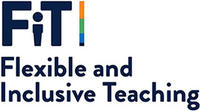Introduction
Digital Education Strategy 2023-27
Purpose
The purpose of the strategy is to identify where digital education has the potential to facilitate achievement of existing education commitments, and to focus the investment and activity necessary to consolidate and embed digital provision to support these aims.
Digital education
Digital education is understood as the purposeful use of digital tools and technologies to support the processes of teaching, learning and assessment for all students whether undergraduates, postgraduates, research students or lifelong learners. As such, the strategy encompasses a broad range of activities including the provision of bridging resources for offer holders, supplementary teaching materials and activities for current students, skills modules for research students, and a portfolio of distance learning courses for lifelong learners. Digital education also includes remote or hybrid participation in teaching, assessment or supervision, either for occasional flexibility or as a response to local or global events.
Aims
For all its hardships, the pandemic has accelerated Oxford’s transition to new technologies, transformed our libraries into global digital hubs and shown us new ways to teach and foster lifelong learning.
Professor Dame Louise Richardson, VC’s Oration, 2022
The use of digital education tools increased rapidly at the start of the COVID-19 pandemic. All students now have access to a core digital learning platform (based on Canvas) which offers possibilities for greater flexibility and accessibility of learning activities and resources. The consultation undertaken to develop this strategy highlighted the need to get the basics right in terms of ensuring the digital and physical infrastructure is in place and performs as needed, providing the foundations for digital education. The strategy aims to consolidate and embed those tools and practices which have been adopted at speed, and to sustain new areas of growth and successful innovations, where they support Oxford’s existing educational commitments. The traditional forms of small group teaching, close supervision and support, and access to world-leading academics remain central to Oxford’s personalised educational approach, which is enriched by access to our libraries and collections.
The previous Digital Education Strategy (2016-20) identified inclusive provision as a key area for development, noting that ‘departments and faculties should be aware of the potential that digital technologies hold to promote inclusivity in their education programmes, particularly for students with disabilities.’ The University’s commitment to adopt exemplary inclusive practice in fulfilling the Public Sector Equality Duty is expressed within the Common Framework for Supporting Disabled Students. While learning remotely was challenging for many students, the ways in which digital tools supported continuity of teaching through the COVID-19 pandemic, exemplified a more flexible and inclusive approach to education at Oxford. The strategy aims to facilitate the development of tools and services that will enable departments to choose how to use digital tools to reduce barriers to accessing and participating in Oxford’s education, and support every student to reach their full academic potential.
While most teaching in Oxford will remain in-person, offering blended or online courses is one way that some departments are choosing to extend their reach, both to support lifelong learners and to engage new audiences. The consultation revealed the extent to which departments are using digital tools to extend access to educational resources, providing flexibility for local lifelong learners, continuing professional development for part-time learners, and access to Oxford’s rich collections. There is a need to support such activities by making available a choice of platforms and services for departments. The goals and actions collected by the working group draw on the experiences of those departments who have been leading the development of online courses, thus providing a roadmap for future development.
Experimentation and innovation are key ways in which teaching can adapt to meeting the changing needs of students. For example, realisation of the University’s Strategic Plan commitment ‘to equip students with the values, skills and intellectual discipline that will enable them to make a positive contribution to society’, needs to take account of the digital age in which we all now live and learn and work. Disciplinary research and scholarship are increasingly shaped by digital methods to collect and analyse data, collaborate with colleagues and engage with research audiences. The consultation showed that while Oxford’s creative educators continually innovate, sustaining and spreading digital innovations are too easily neglected and require the most support. The strategy aims to create an institutional environment for digital education in which innovation is supported and experiences are widely shared.
Contact us
For general enquiries, please contact us at
Stay informed
Follow us



